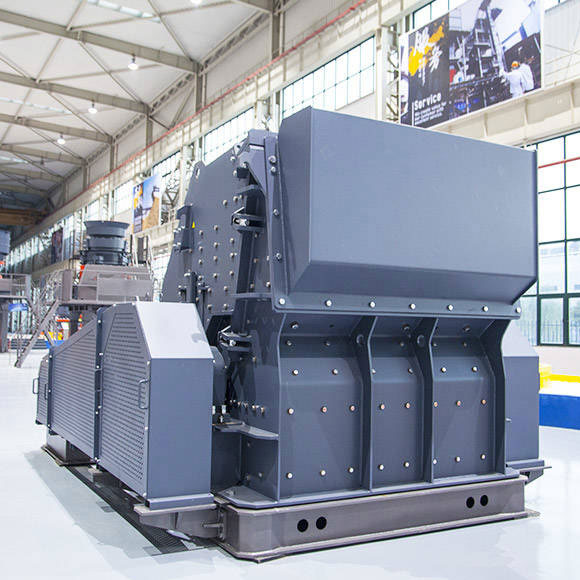An impact crusher is a machine that uses high-speed impact forces to crush materials. It works by picking up the material from the bottom of the crusher and throwing it into the air, causing it to be crushed against a series of anvils, curtains or breaker plates which catch and redirect the material’s energy in various directions until it falls onto the bottom of the crusher again ready for another cycle.
The basic operating principle of an impact crusher is simple – feed material enters the crushing chamber through a hopper or gravity-fed conveyor. The material is accelerated by the rotor and impact curtains or breaker plates and then impacted by hammers or blow bars attached to the rotor. This high-speed impact causes the material to fracture along its natural cleavage planes, resulting in a cubical product with a high percentage of fines.

There are two primary types of impact crushers: horizontal shaft impact crusher (CI5X) and vertical shaft impact crusher (VSI6X).
Horizontal Shaft Impact Crusher (CI5X)
A horizontal shaft impactor utilizes a horizontal spindle or rotor that spins rapidly as material is fed into the crusher. The rotor has a series of bars or hammers attached to it that strike the material as it rotates, breaking it down into smaller pieces. The material is then discharged from the bottom of the crusher.
Vertical Shaft Impact Crusher (VSI6X)
A vertical shaft impactor operates somewhat differently than a horizontal shaft impactor. In a VSI6X, material is fed into a chamber with a spinning rotor that throws the material against a series of anvils or shoes made out of metal or rock-lined plates. As the material is impacted and broken down, it falls back down through the center of the rotor and is discharged from the bottom of the crusher.
Impact crushers are versatile machines that can be used in a variety of applications, including mining, construction, and recycling. They are ideal for processing soft to medium-hard materials such as limestone, gypsum, gravel, and sand. Impact crushers are also effective at producing a wide range of sizes and shapes of finished products, from large blocks to tiny particles.
One of the main advantages of an impact crusher is its ability to produce a cubical product with minimal fines generation. This makes it ideal for use in concrete and asphalt production where the shape of the finished product is critical. Additionally, impact crushers can be equipped with a variety of options such as blow bars, curtains, and liners to further customize the crushing process for specific applications.
